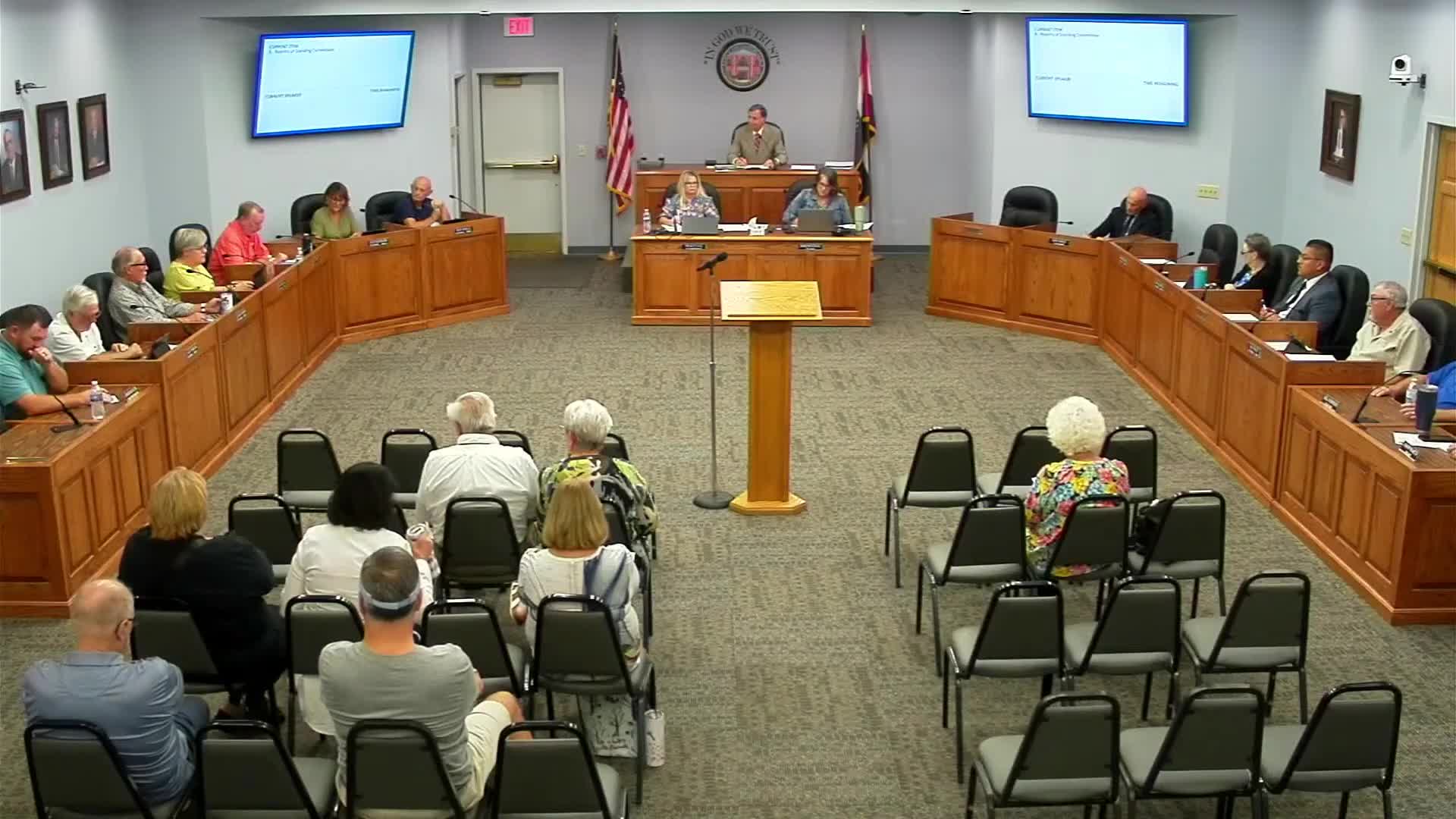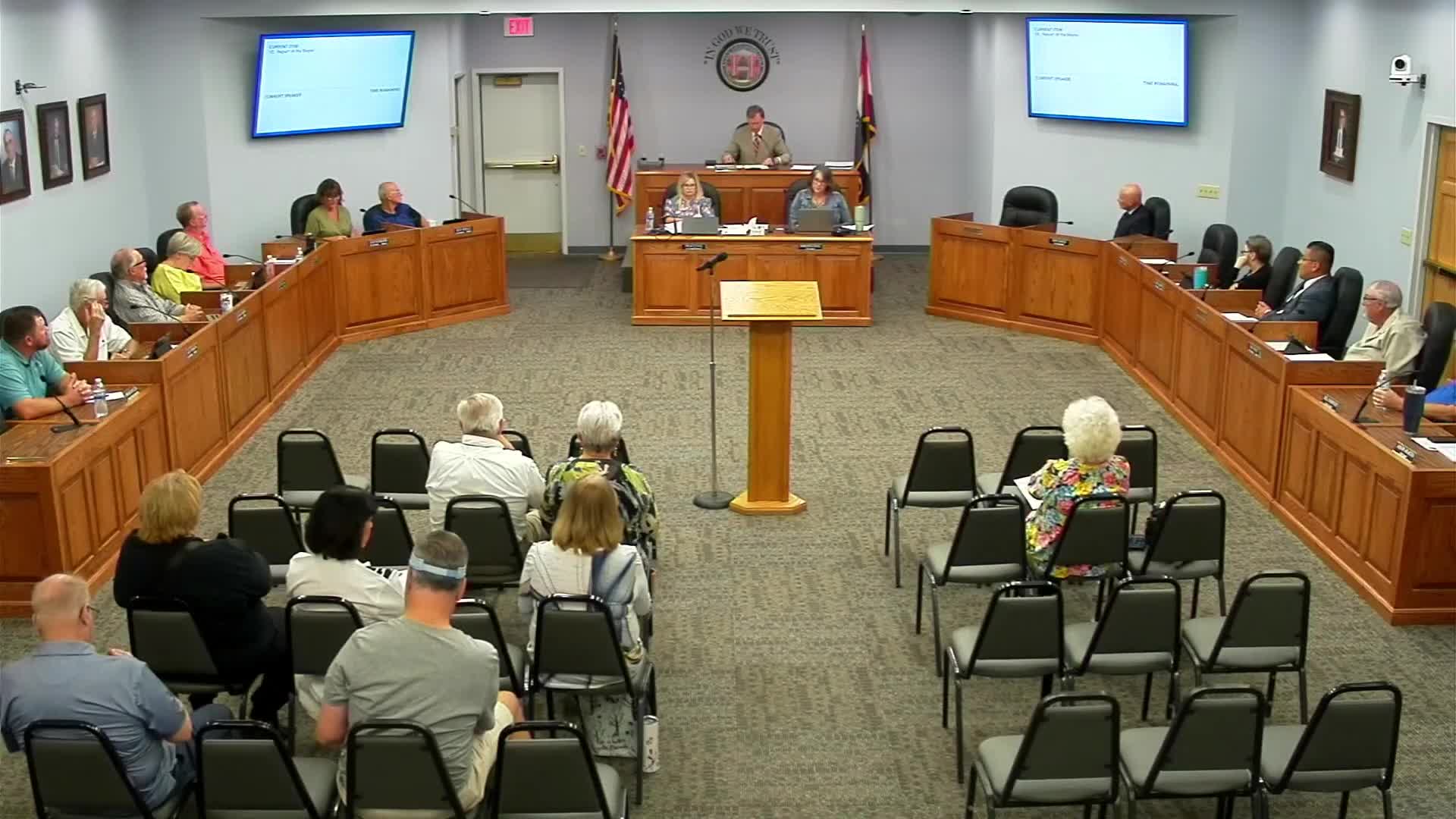Article not found
This article is no longer available. But don't worry—we've gathered other articles that discuss the same topic.

Council to seek larger transit grant and consider fire-sales-tax budget adjustment for new truck

Carthage council introduces study to map waters on South Economic Development Park

Council introduces amendment to redevelopment code to align tax-abatement notice with state guidance

Mayor names code-enforcement committee after resident raises contractor-damage concerns

